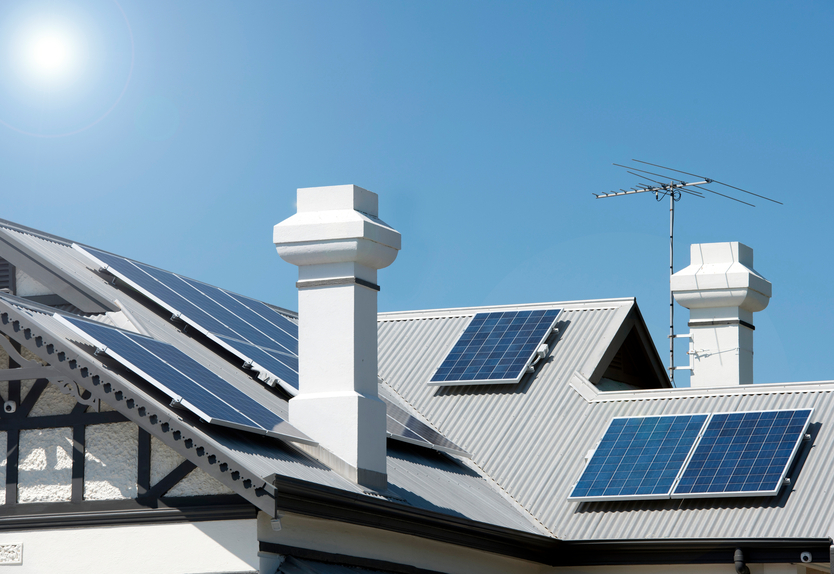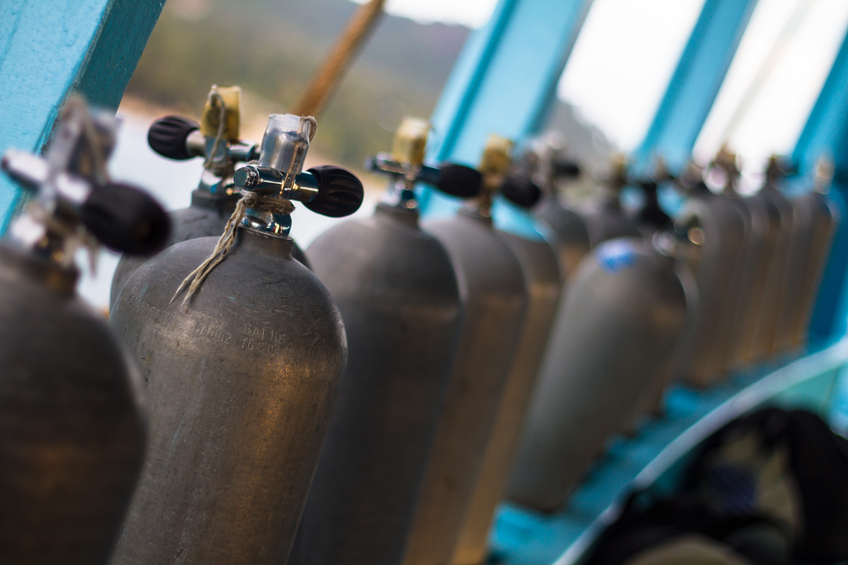Energy Efficiency 30 PDH Discount Package
Compressed Air Energy Efficiency (M06-013)
Energy Efficient Windows and Doors (M03-052)
HVAC Tips for Green Buildings (M10-002)
Improving Energy Efficiency of Boiler Systems (M06-022)
Professional Engineer's Guide to Energy Star® for Commercial Buildings (C02-027)

This online engineering PDH course presents the information required to design a solar energy water heating system, after planning and system selection have been completed. The design of the principle sub-systems, including collectors, storage and controls, are discussed.
This 3 PDH online course is intended for mechanical engineers and other design and construction professionals interested in an introduction to the design of solar water heating systems.
This PE continuing education online PDH course is intended to provide you with the following specific knowledge and skills:
- Learning about solar absorber construction and components
- Learning how to design collector manifolds
- Understanding the benefits of, and how to design, a reverse-return system
- Understanding the benefits and drawbacks of internally and externally manifolded collectors
- Knowing the fundamentals of solar collector selection and specification
- Learning about flow balancing for collector arrays
- Understanding the importance of, and how to do, pressure drop calculations
- Learning how to design and specify the collector, transport, storage and control sub-system
In this professional engineering CEU course, you need to review the course document titled, "An Introduction to Design of Solar Water Heating Systems".
Upon successful completion of the quiz, print your Certificate of Completion instantly. (Note: if you are paying by check or money order, you will be able to print it after we receive your payment.) For your convenience, we will also email it to you. Please note that you can log in to your account at any time to access and print your Certificate of Completion.

This online engineering PDH course explains how the selection, control and maintenance of compressed air plant can improve energy efficiency and reduce running costs.
In terms of electrical power usage and direct electrical power costs, the air compressor installation is probably the highest and most inefficient in terms of energy usage. Roughly 80 to 90 percent of the electricity used to operate compressed air systems is converted to low-temperature waste heat. This lost energy can quickly add up, each year costing individual manufacturers as much as double the purchase and installation cost (first-cost) of the entire system.
Most manufacturing facilities use compressed air for at least some functions; for many plants, energy for compressed air systems can account for up to 35% of the total electrical power billing of a facility. Over 15% of total motor energy in the industrial sector goes to producing compressed air, yet compressed air systems are inherently inefficient, producing only one unit of useful work for every 5 units of energy input. It is obvious that the electrical costs of your particular installation need to be fully understood.
This 6 PDH online course is applicable to mechanical engineers, design professionals, service technicians, operational & maintenance personnel, energy auditors and facility engineers and all personnel who are interested in gaining a better understanding in compressed air energy efficiency.
This PE continuing education course is intended to provide you with the following specific knowledge and skills:
- Compressor Types and Controls: Familiarizing with the various types of compressors commonly used and how the control systems are matched to the needs of the users.
- Compressed Air Systems Auxiliary Components: Understanding the key components of compressed air system and what each component does. Learning about the air storage, air drying, piping, filtration and air cleaning methods.
- Selecting the Right Compressor Package: Ability to compare various options on the technical parameters and energy efficient features.
- Compressed Air System Assessments: Understanding the energy audit methodology.
- Energy Efficiency Measures: Learning about the common losses in compressed air systems and the ways to conserve energy.
In this professional engineering CEU course, you need to review the document tilted, "Compressed Air Energy Efficiency".
Upon successful completion of the quiz, print your Certificate of Completion instantly. (Note: if you are paying by check or money order, you will be able to print it after we receive your payment.) For your convenience, we will also email it to you. Please note that you can log in to your account at any time to access and print your Certificate of Completion.

This online engineering PDH course will establish the principles of design and installation of energy-efficient windows and doors in residential buildings.
Residential buildings account for about 21% of total energy consumption in the United States, and windows alone are responsible for 25% to 30% of residential heating and cooling energy use. The U.S. Department of Energy estimates that upgrading the nation's current window stock to meet DOE's long-term performance goals could save more than 2 quadrillion BTU. Clearly, expanding the use of energy-efficient windows should be of interest to engineers and others interested in reducing energy consumption.
This course provides guidelines for engineers and designers concerned with the selection of energy-efficient windows and doors in new and existing residential construction in all U.S. climate zones. A discussion is given on energy performance for many window types and window coverings, and guidance is included for reducing energy lost through windows and doors.
The 3 PDH online course is intended for engineers and designers concerned about saving energy in residential buildings.
This PE continuing education course is intended to provide you with the following specific knowledge and skills:
- Understanding measures of efficiency such as U-Factor and SHGC (solar heat gain coefficient)
- Learning about the concepts of visible transmittance and air leakage
- Understanding glazing types and frame types
- Learning about the effects of using low-conductance spacers and gas fills
- Learning about energy and cost savings for new and replacement windows for various climate zones
- Understanding the labels for energy efficiency provided by various certifying organizations
- Learning about effects of orientation, window area, and shading
- Understanding energy efficiency in door design
Upon successful completion of the quiz, print your Certificate of Completion instantly. (Note: if you are paying by check or money order, you will be able to print it after we receive your payment.) For your convenience, we will also email it to you. Please note that you can log in to your account at any time to access and print your Certificate of Completion.

This online engineering PDH course discusses some of the proven energy efficiency HVAC concepts for the new building projects. The course focuses on the design of energy efficient building architecture, building construction materials, HVAC equipment design considerations, energy, refrigerants, construction practices, indoor environment quality and commissioning practices.
Buildings as they are designed and used today, symbolize unrestrained consumption of energy and other natural resources with its consequent negative environment impact. Green HVAC design means improving a facility's indoor air quality (IAQ) and energy consumption as much as possible.
Like many other appliances, the cost of your indoor comfort system includes not only its initial price, but also the ongoing costs of operation and maintenance. This means that the cooling and heating equipment and controls that you select today will continue to impact your finances for as long as you occupy the building. That's why investing in a high efficiency comfort system and maintaining your comfort system makes sense.
This 10 PDH online course is intended for engineers, architects, realtors, building owners, facility managers, interior designers, landscape architects, construction managers, lenders and educators and other professionals interested in learning about tips for green buildings.
This PE continuing education course is intended to provide you with the following specific knowledge and skills:
- Importance of bio-climatic/solar passive building design, building siting, day-lighting and other architectural elements for minimizing HVAC loads
- Affect of energy efficient lighting and appliances on HVAC system
- Principles of heat transfer and the parameters affecting the selection of energy efficient building envelope materials for roof, walls, glazing and insulation
- Criteria for selecting appropriate cooling system for your application - package units, ductless split, central chiller systems
- Impact of CFC compounds on ozone depletion and adopting environment friendly refrigerants
- Principles of cooling tower operation and importance of cooling water treatment
- Selection criteria for hydronic system including chilled water & condenser water pumps, variable speed pumping, chilled water distribution schemes, piping and heat recovery
- Selection criteria for energy efficient air distribution system including air handlers, variable air volume systems, optimal air distribution systems, and ductwork.
- The heat recovery devices and systems such as airside & waterside economizers, enthalpy & heat wheels, heat pipe systems and run-around systems
- Alternate system designs using dedicated outdoor air handling systems, demand control ventilation, displacement ventilation, hybrid ventilation, heat pumps and evaporative cooling systems
- Energy efficient space heating systems including furnaces, boilers, heat recovery devices, radiant slab and panel heating systems
- The concepts of thermal energy storage and energy management systems
In this professional engineering CEU course, you need to review the course document tilted, "HVAC Tips for Green Buildings".
Upon successful completion of the quiz, print your Certificate of Completion instantly. (Note: if you are paying by check or money order, you will be able to print it after we receive your payment.) For your convenience, we will also email it to you. Please note that you can log in to your account at any time to access and print your Certificate of Completion.

This online engineering PDH course provides simple facts and energy efficiency opportunities in the areas of combustion management, makeup & feed water management, condensate return, blow-down system, waste heat recovery and steam distribution & utilization.
Fuel consumers face a double challenge. One is economic - to get the best heating value for every fuel dollar. The other is environmental - to keep emissions low, at least within legislated limits. Fortunately, what benefits the first objective also benefits the second. A boiler installation costing $75,000 can easily consume over $400,000 in fuel every year. Consequently, even with very economical fuel costs, a difference of just a few percentage points in boiler efficiency can translate into substantial savings. Understanding boiler operating costs is the key to maximizing investments year in and year out.
This 6 PDH online course is intended for mechanical, chemical & process engineers, system design engineers working in power, oil & gas, chemical, metal & mining, manufacturing and engineering industries, energy auditors, operational and maintenance personnel who are involved in the design and operation of boiler systems.
This PE continuing education course is intended to provide you with the following specific knowledge and skills:
- Understanding the direct and indirect methods for evaluating boiler efficiencies
- Establishing list of energy losses in a boiler system
- Learning about combustion analysis; excess air control and air-fuel mix
- Learning about heat recovery systems (economizers, preheater, flue gas condensing etc)
- Familiarizing with waterside and fireside problems
- Understanding the various boiler water treatment approaches
- Understanding the importance of condensate recovery
- Learning about blowdown optimization and waste heat recovery using flash tanks/ heat exchangers
- Learning about energy efficiency in steam distribution and steam utilization
- Applying automation using burner controls and oxygen trims
- Utilizing boiler audit checkpoints & questionnaire
In this professional engineering CEU course, you need to review the document titled "Improving Energy Efficiency of Boiler Systems".
Upon successful completion of the quiz, print your Certificate of Completion instantly. (Note: if you are paying by check or money order, you will be able to print it after we receive your payment.) For your convenience, we will also email it to you. Please note that you can log in to your account at any time to access and print your Certificate of Completion.

This online engineering PDH course is fully based on the US Environmental Protection Agency guide, “2009 Professional Engineer's Guide to the ENERGY STAR® Label for Buildings” and is divided into 6 modules, each covering a single topic and contains a purpose, background, expectations, hints and tips, and questions and answers. Where needed, industry standards are referenced and tables are provided to illustrate the relevant standard requirements.
ENERGY STAR® labeling of the building is an effort by US Environmental Protection Agency to help mitigate the society’s impact on the environment and climate change. The process requires Professional Engineers to validate each statement of Energy Performance that is used to apply for the Energy Star label. As a program of the US government, the program is free. However, it does require a professional engineer to review the application and perform a detailed field assessment and verification.
This 2 PDH online course is intended for professional engineers who plan, design, install, and operate building services systems. This course is intended to assist the PE community in understanding the requirements of the Statement of Energy Performance, the Data Checklist, and the expectations and limitations of the PE’s role in the ENERGY STAR labeling process.
This PE continuing education course is intended to provide you with the following specific knowledge and skills:
- Understanding the qualifications required for Energy Star Labeling
- Understanding the requirements of validating the Energy Performance Statement
- Understanding the categories of building types eligible for Energy Star Labeling
- Understanding the data required to validate the physical characteristics of the building
- Understanding the data required to validate the operating characteristics of the building
- Understanding the verification requirements of all forms of energy used for building operation
- Understanding the verification requirements of the thermal conditions of the building
- Understanding the verification requirements of the illumination requirements of the interior and exterior spaces
- Understanding the verification requirements of the minimum ventilation rates and acceptable indoor air quality of indoor spaces
- Understanding the format of various forms and checklists
In this professional engineering CEU course, you need to review the course document titled “2009 Professional Engineer's Guide to the ENERGY STAR® Label for Buildings”.
Upon successful completion of the quiz, print your Certificate of Completion instantly. (Note: if you are paying by check or money order, you will be able to print it after we receive your payment.) For your convenience, we will also email it to you. Please note that you can log in to your account at any time to access and print your Certificate of Completion.